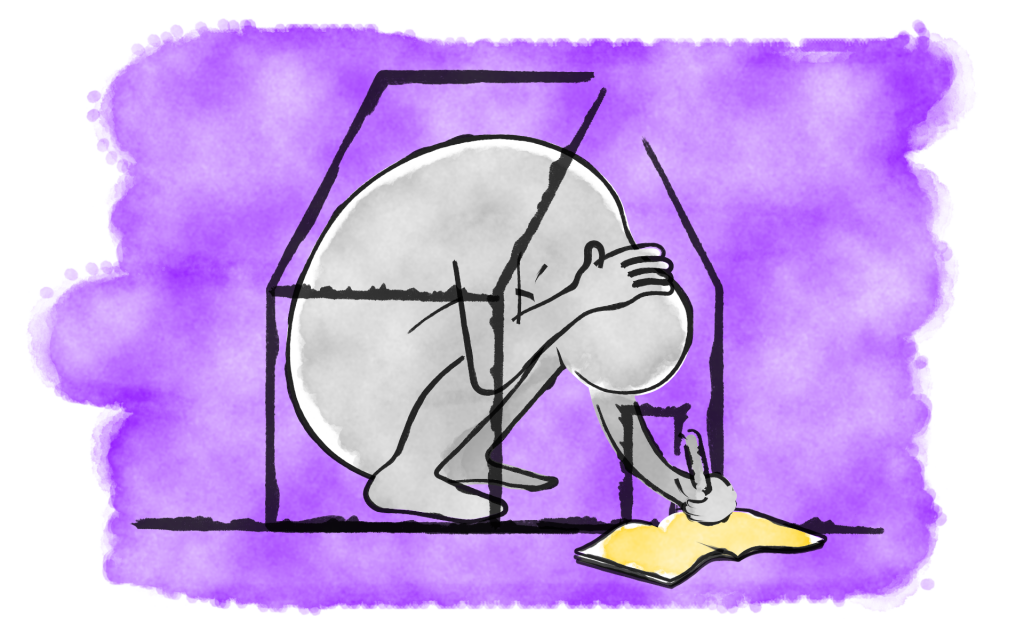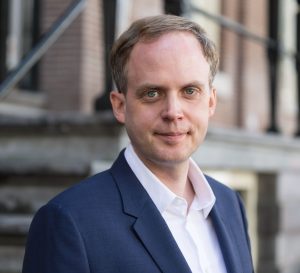01 May 2020, Iris Proff

© Arco Mul
Upon opening any history book, you will most likely read about the actions of the emperors, kings, and presidents or about the dynamics between such abstract units as empires, states, or religions. It was Napoleon who set out to conquer Europe, the Ottoman Empire that spread Islam across three continents and the republics of former Yugoslavia who decided to fight for their independence.
But history books rarely speak about the experiences and struggles of the individuals affected by these events. What were the intentions, hopes and fears of those who left their homes to join the crusades in the middle ages? Did French farmers celebrate or condemn the revolution of 1789? What did the inhabitants of Venice go through when a third of the city’s population was killed by the plague? These are not the kind of questions we most often discuss when trying to understand why history unfolded the way it did. One reason that the perspective of the ‘small’ men and women is often disregarded is that they often do not have a voice: we just lack the data or the means to evaluate it systematically.
This is changing in the digital age. Thanks to online services, everyone has the means to document and share his or her thoughts with the world. This is amplified by the current crisis: As COVID-19 strips us of real-life interactions, our lives are becoming more digital than ever before. At the same time, individuals are faced with a radical change to their daily routines and many are eager to document their way of coping with this change. Tobias Blanke, professor at the University of Amsterdam, sees in these unique circumstances the perfect opportunity to capture a snapshot of what he calls the history from below.

Blanke is working in the field of Digital Humanities. That is, he uses computational methods to understand data produced by humans. Despite his background in informatics, he does not consider himself a typical computer scientist. “I am not especially interested in improving algorithms, but in understanding the meaning behind data”, he states. One of his special interests lies in historical data. In a recent project, the researcher applied neural networks to decode sentiments expressed in interviews with Holocaust survivors. Unlike for other historical events, there exist large databases containing memories of Holocaust victims. This is owed to both the Jewish community and plenty of political institutions who have a strong interest in preserving those records. Only by means of individual stories can we today understand and reconstruct what happened through the eyes of the victims, rather than reducing it to the facts captured by history books.
Hunting for experiences from the pandemic
Tobias Blanke and Julia Noordegraaf, professor for Digital Heritage, have the vision to set up an equally insightful data archive for people’s memories from the ongoing pandemic. The researchers collect anonymous experiences from individuals throughout the Netherlands. How do they deal with this new way of life, being confined to their homes, and faced with economic uncertainties? This data can have various formats: Diary entries, blog posts, pictures, WhatsApp chat archives from neighborhood groups, but also poems or drawings capture how individuals experience the situation. How do people spend their days, what sorrows and fears do they have? Which innovations in live streaming, online conferencing and remote dinner parties do people come up with? How does online dating work in these days? How do people celebrate their birthday during the lockdown? What are the struggles of life in home office? Individuals, not governments or research institutes have the answers to these questions. “We are not so much interested in data that you can easily access, like official statements or Twitter feeds”, Blanke states. “We are after the kind of data that is hard to get.”
Blanke and Noordegraaf are working in cooperation with the Amsterdam museum, that recently launched the project Corona in the city, where individuals can submit their personal experiences of Corona times. The museum will select items and curate an online exhibition. Opposed to that, the Blanke and Noordegraaf will not publish the data they gather but archive it for future research. “As this is a crowdsourcing project, it might go fantastically well or lead to very little“, Blanke notes. In the end, it all depends on how many people they can reach and how willing those are to contribute their personal experiences.
What to do with an archive of experiences?
Once established, the data archive can be questioned to answer all kinds of questions. It might give valuable insights into how people coped with social isolation and which coping strategies proved most effective. It might inform about people’s reaction if someone in their vicinity got infected with the virus. It might fuel research into best practices in working from home.
But there is an obvious challenge: Each record contained in the archive represents its own, unique perspective. How to evaluate those systematically? Tools from artificial intelligence might make the difference here. Those can be used to extract information of interest and pinpoint overarching patterns across individual reports. The archive – so the researchers hope – will help them to tell the history of this pandemic through the lens of individuals.